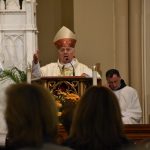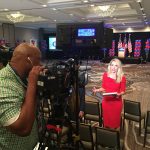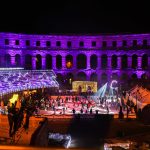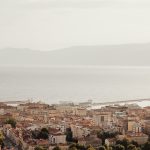At Johns Hopkins School of Advanced International Studies (SAIS) within their Conflict Management Program, they hosted a panel entitled: Russia’s Influence In the Balkans: Methods and Results which was held last Tuesday, February 6th in Washington, DC, USA.
Croatian American activist, Steve Rukavina, President of the National Federation of Croatian Americans Cultural Foundation (NFCA), was one of five panelists to present at this event. The moderator was well known foreign policy analyst, Daniel Serwar, Senior Fellow with The Center for Transatlantic Relations (SAIS). Other panelists included Jelena Milic, Director of the Euro-Atlantic Studies, Belgrade; Meto Koloski, President of the United Macedonian Diaspora, Sinisa Vukovic, Assistant Professor, Conflict Management Program (SAIS) and Reuf Bajrovic, former Minister of Energy of the Federation of Bosnia and Herzegovina. It was a unique opportunity for NFCA President, Steve Rukavina to address the distinguished group of over 100 attendees and including over 15 diplomats, US State Department officials and many foreign policy analysts and ethnic leaders from all over Southeast Europe.
The NFCA President representing the Croatian American community stressed that “Croatia entering NATO in 2009 and into the European Union in 2013 was geo-politically very significant”. Mr. Rukavina added that Croatia’s membership in these two Euro-Atlantic entities along with Croatia’s current leaders, President Kolinda Grabar-Kitarovic and Prime Minister Andrej Plenkovic looking west, have led to Croatia truly becoming a role model in Southeast Europe from a Euro-Atlantic perspective.
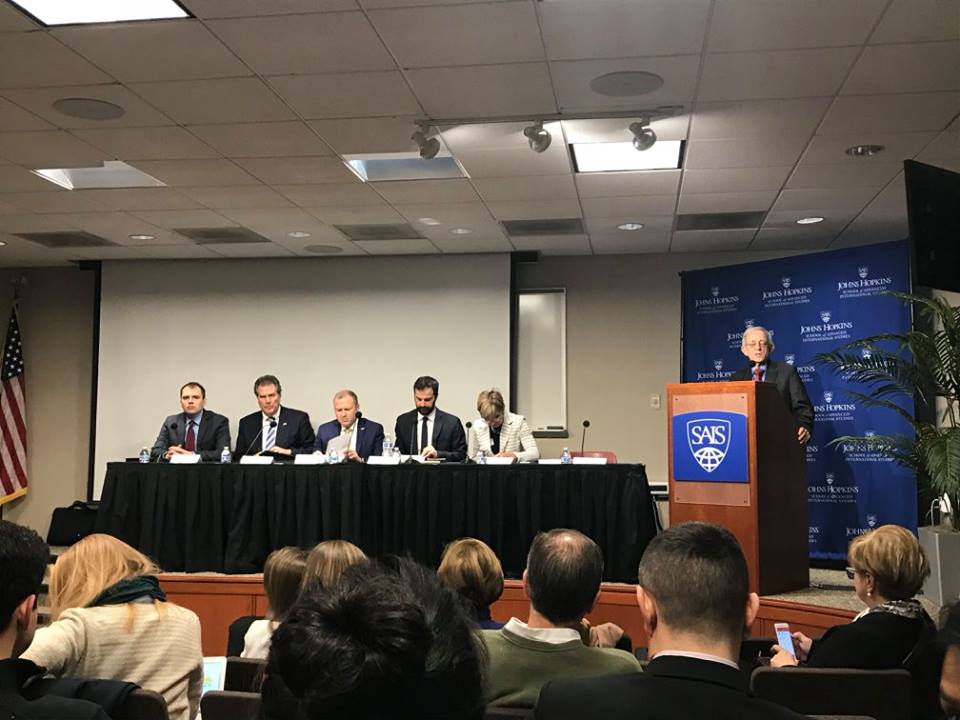
Mr. Rukavina’s main points were based mostly on economic and geo-political realities in-
Mr. Rukavina pointed out that Russia has not created any significant partnerships with any nationalist parties, populists or Euroskeptic type politicians in Croatia of note, like they have done in a few Central European countries. He discussed that only 35% of Croatia’s natural gas comes from Russian controlled Prvo Plinarsko Drustvo,based in Vukovar, which is the Gazprom arm in Croatia. Mr. Rukavina cited that Croatia recently signed in September 2017 a ten year contract from Gazprom for 1 billion cubic meters of gas per year but that Croatia is much more energy independent than their neighboring countries to the east.
The NFCA president spent quality time discussing pertinent
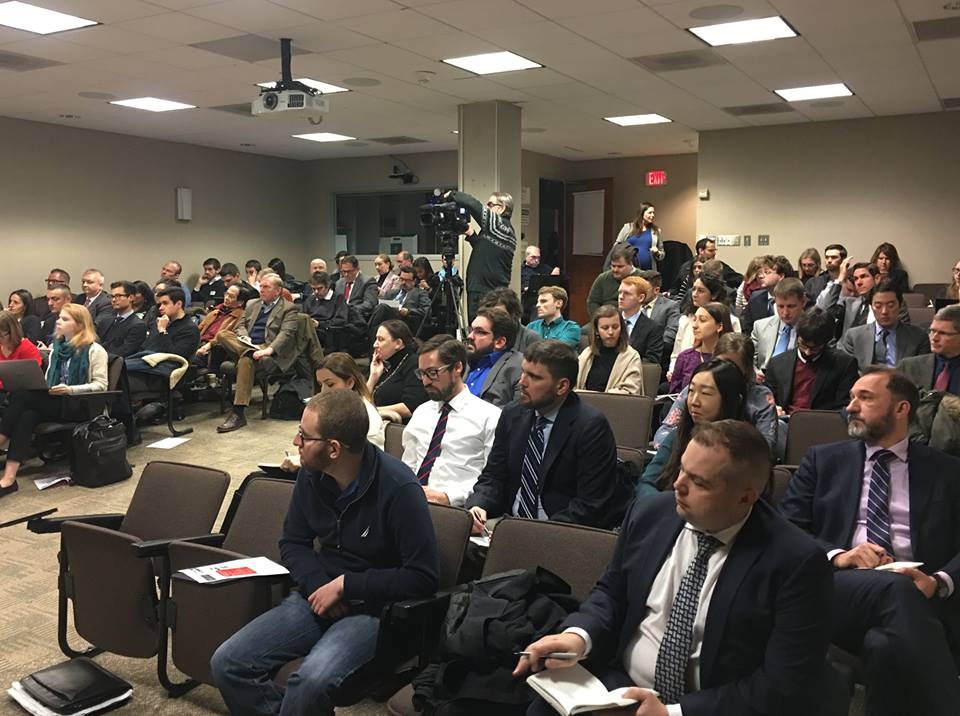
There was a spirited question and answer session with back-forth exchanges between the panelists and two representatives of the Republika Srpska who vehemently denied that any Russians were privately training Serb police in the Banja Luka area. Both R.S. Serb representatives claim there’s only joint training sanctioned by NATO or the FBI or other European group. Three panelists, Reuf Bajrovic, Jelena Milic and Steve Rukavina all challenged these two speakers defending Milorad Dodik and the R.S. about Russian training and presented details and evidence that suggests an active on-going role for Russian agents in the R.S. over the past five years and officially through the R.S. Ministry of the Interior.
The NFCA President closed with the reminder that Croatia, as a NATO and EU member is clearly geo-politically, a close ally of the United States and a major contributing member of the Euro-Atlantic community in Southeast Europe.



